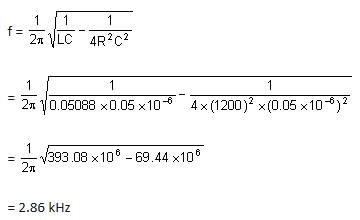GATE Instrumentation Mock Test - 2 - GATE Instrumentation MCQ
30 Questions MCQ Test GATE Instrumentation 2026 Mock Test Series - GATE Instrumentation Mock Test - 2
A person has tossed 3 coins. Determine the probability of obtaining at most two heads.
Given that a = -5, b = -6, and c = 10, what is the value of  ?
?
 ?
?
Given the following inequalities:
(i) 3p - q < 4
(ii) 3q - p < 12
Which of the following expressions satisfies both of the inequalities listed above?
(i) 3p - q < 4
(ii) 3q - p < 12
Which of the following expressions satisfies both of the inequalities listed above?
A function f(x) that is periodic with a period of 2 is defined as

What does the Fourier series of this function contain_______.
The output of a system y(t) is connected to its input x(t) through the equation y(t) = x(t) sin(2πt). This system is _______
A signal x(t) is confined within the frequency range of 100 Hz to 200 Hz.
A signal y(t) is defined in relation to x(t) as follows:
y(t) = x(2t - 5)
The assertion that is always valid is______
The resistance of a pure copper wire with a length of 10 cm and a diameter of 1 mm needs to be determined. Among the options listed below, the most appropriate method to measure it is ________.
A beam of unpolarised light is initially directed through a linear polariser and subsequently through a quarter-wave plate. What is the nature of the resulting beam?
Consider the discrete-time system illustrated below.
x[n] → h[n] → y[n]
y[n] ↔ y[z], with y[n] being absolutely summable
x[n] ↔ x[z], with x[n] being absolutely summable
h[n] ↔ H[z]
The pole-zero plots for x(z) and Y(z) are depicted in Figures (A) and (B), respectively.
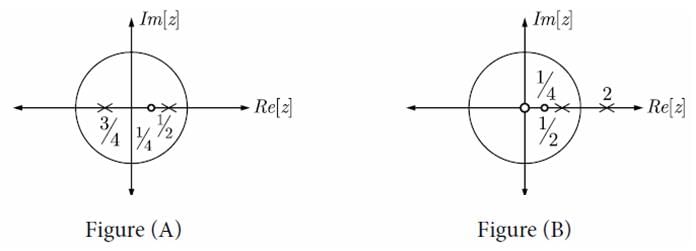
Which of the following illustrates the pole-zero plot of H(z)?
Which of the following represents the root locus plot for the loop gain

The output F of the logic block depicted is given by _____
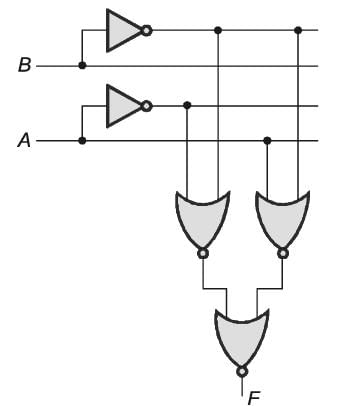
The frequency of resonance (in Hz) for the Wein bridge oscillator depicted in the circuit shown is _____. (Round your answer to two decimal places)
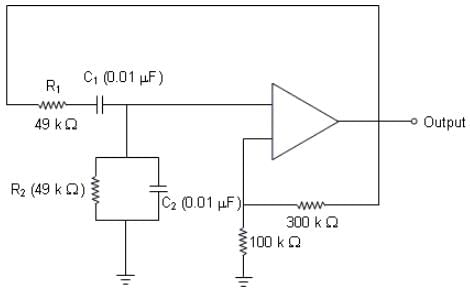
In the bandpass filter circuit depicted, R0 = 50 Ω, L0 = 1 mH, C0 = 10 nF. What is the Q factor of the filter? Please round your answer to two decimal places.
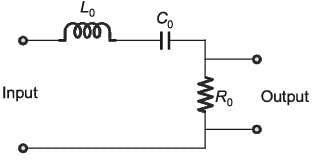
A voltage signal Vin(t) displayed is applied to the circuit from t = 0 ms to t = 6 ms. The initial voltage across the capacitor is 0.3 V, and it is assumed that the diode is ideal. What is the open circuit voltage Vout(t) at t = 5 ms?
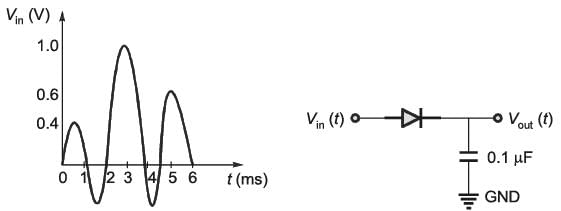
The signal x(t) = (t - 1)2u(t - 1), where u(t) denotes the unit-step function, possesses the Laplace transform X(S). What is the value of X(1)?
A digital-to-analog converter (DAC) constructed with a resistor ladder receives a digital input, resulting in the state represented in the figure. For this particular digital input, determine the Thevenin voltage, Vth, and Thevenin resistance, Rth, observed at the output node are ______
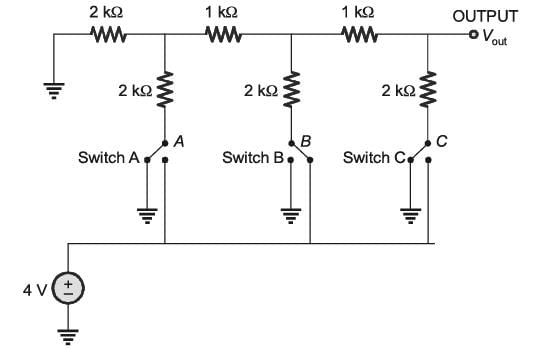
Two positive numbers x and y, both of which do not exceed 2, are selected randomly. What is the probability that xy ≤ 1 and y/x ≤ 2?
Determine the distance between the planes represented by the equations x 2y - 3z - 4 = 0 and 2x 4y - 6z = 1 along the specified line 
A signal modulated using AM and a narrow-band FM signal, both utilizing the same carriers, modulating signals, and having modulation indices of 0.1, are combined. The resulting signal can be accurately represented by:
The open loop transfer function for a feedback control system is represented by

In the root locus plot of this system, the asymptotes of the root loci for large values of K converge at a specific point in the s-plane. What are the coordinates of that point?
The output of a first-order measurement system in response to a unit step input is given by 1 - e-t, where t represents time in seconds. If an input of 0.2 units per second is applied to this system, what is the error in the measured value once the transient effects have subsided? (Provide your answer rounded to one decimal place)
In Circuit A, the currents I1 and I2 are depicted as shown. What is the value of current I3 in Circuit B (in amperes)? Please round your answer to one decimal place.
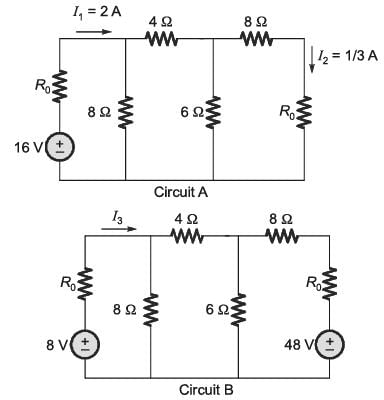
Given the function  what is the residue of f(z) at z = -1?
what is the residue of f(z) at z = -1?
In the circuit depicted in the figure, the voltage v1 (in V) is equal to _______ (Provide your answer rounded to the nearest integer)
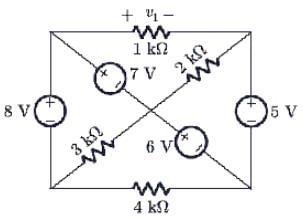
For a unity feedback system characterized by the open loop transfer function  , the unit step response reaches a steady state of 0.75 after some time. What is the value of k?
, the unit step response reaches a steady state of 0.75 after some time. What is the value of k?
Analyze the logic network and the corresponding truth tables for the functions 'g' and 'f' as shown below.
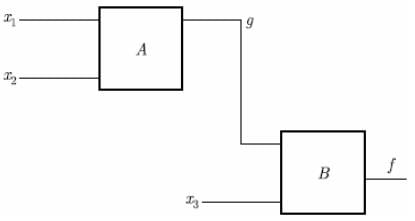
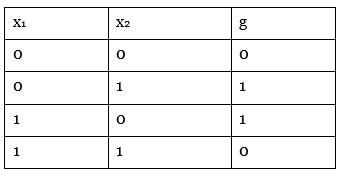
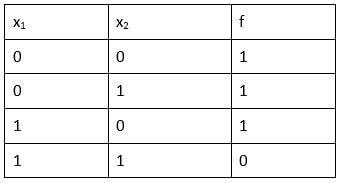
The probability that x1 equals '1' is 0.3. The variables x1 and x2 are interdependent to some extent.
Given that P(x2 = 1 | x1 = 1) = 0.4 and P(x2 = 1 | x1 = 0) = 0.6.
The 'f' function is implemented using a static CMOS logic family with the inputs x1, x2, and x3. What is the minimum number of transistors required?
In the regulator circuit illustrated below, the following parameters are provided:
V2 = 6.3 V
I2T = 40 mA
Rz = 2 Ω
Vs = 12 V to 18 V
Minimum load current = 0 mA
Minimum Zener diode current = 1 mA
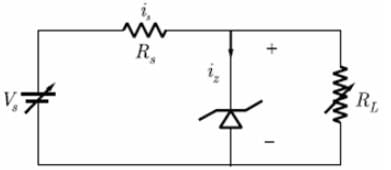
To ensure that the power dissipation Pz(max) of the Zener diode does not exceed 750 mW at 25°C, what is the maximum allowable value of Zener current iz(max) (rounded to the nearest integer, in mA)?
In a 220 kV system, the reactance and capacitance at the circuit breaker location are 16 and 0.05 μF, respectively. A resistance of 1200 is connected across the circuit breaker contacts.
[Given ω = 2π 50 rad/sec]
The damped frequency (in kHz) of the oscillations will be _____. (Provide the answer up to two decimal places)
Two 4-ray signal constellations are depicted. It is stated that φ1 and φ2 form an orthonormal basis for the respective constellations. Assume that the four symbols in each constellation are equally likely. Let N0/2 represent the power spectral density of white Gaussian noise.
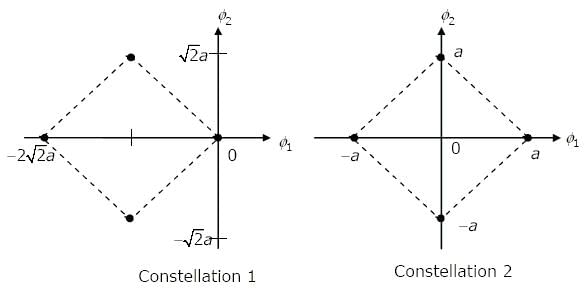
What is the ratio of the average energy of constellation 1 to that of constellation 2? (Provide your answer rounded to one decimal place)





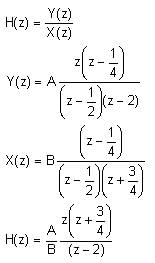


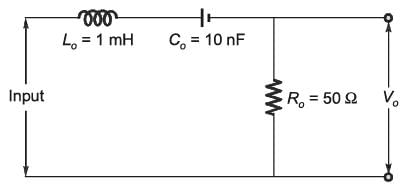
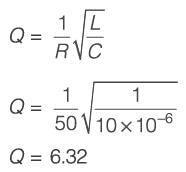
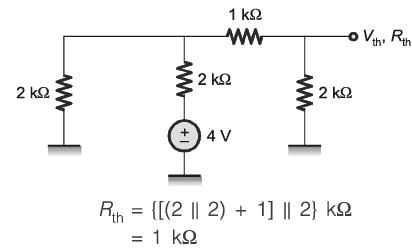
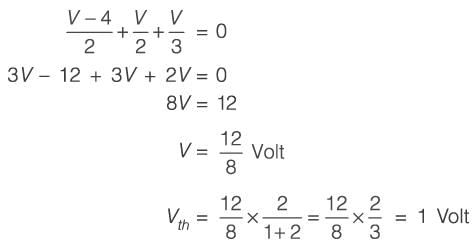
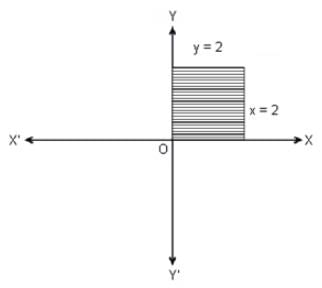
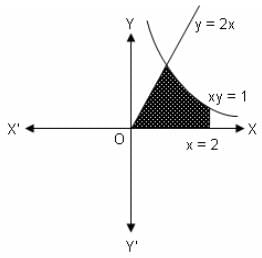
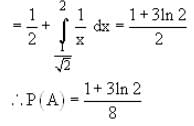
 intersects the given planes at P and Q, then point P is (r1, –3r1, 2r1) and point Q is (r2, –3r2, 2r2)
intersects the given planes at P and Q, then point P is (r1, –3r1, 2r1) and point Q is (r2, –3r2, 2r2)


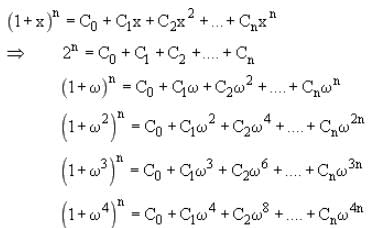

 Thus it is SSB with carrier.
Thus it is SSB with carrier.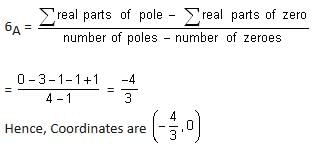
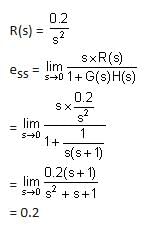
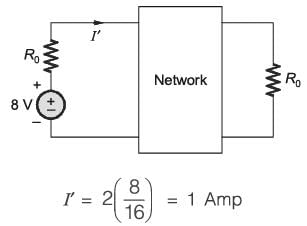
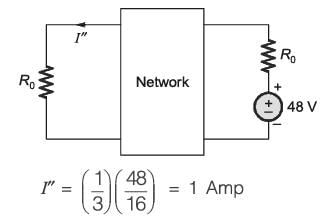
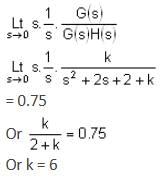
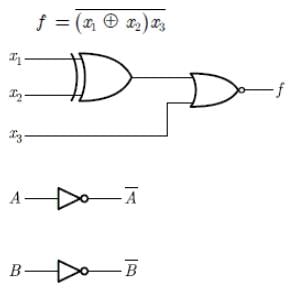
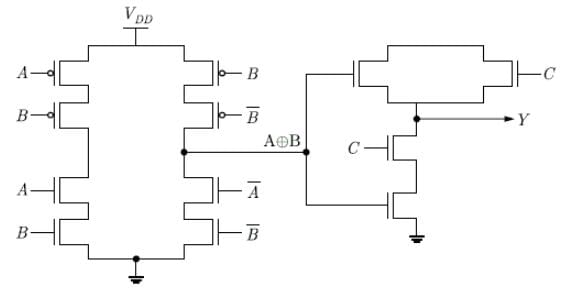
 will have to be produced by means of two inverter that needs four transistors.
will have to be produced by means of two inverter that needs four transistors.
